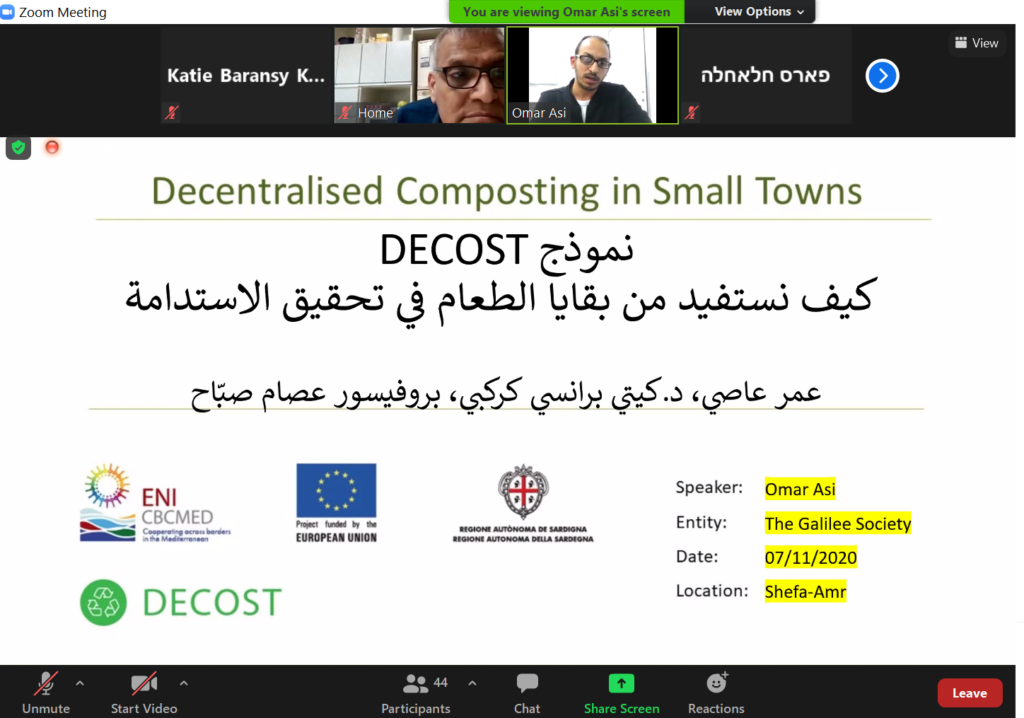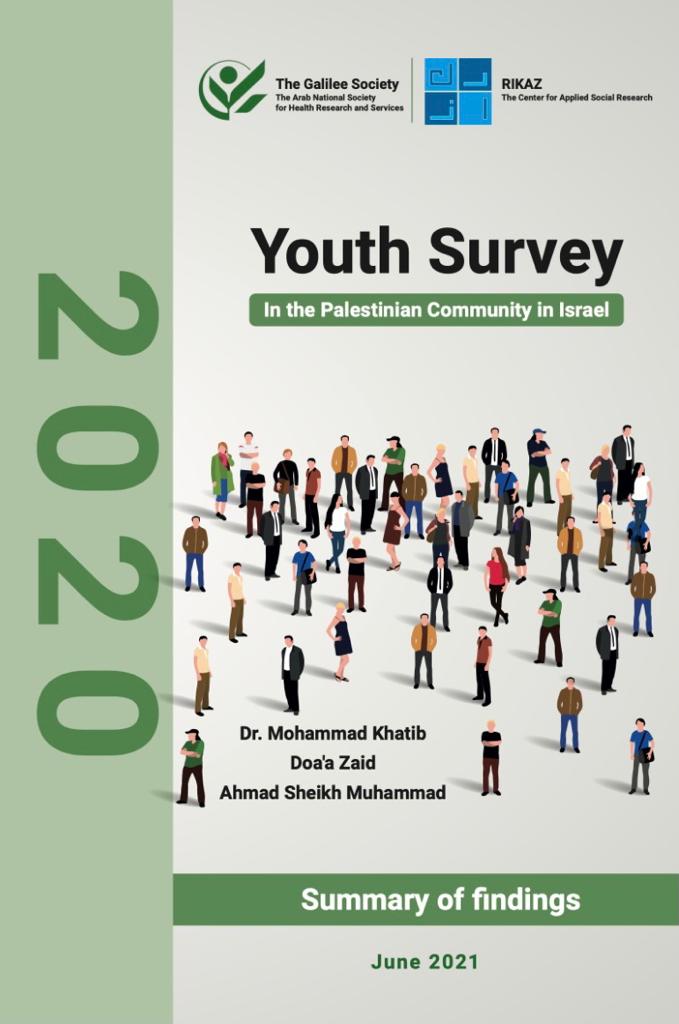Which was held in partnership between two departments in the Galilee Society: the Institute of Applied Research and the Environmental Justice Center. While food waste is a global issue with economic, environmental, health, and social implications, its impact appears to be more severe on the Arab community in Israel in light of the food insecurity that many Arab families suffer from. Hence, the conference shed light on the challenges that the Arab community faces in this regard, and the solutions and opportunities available to it to curb this phenomenon.

The first session of the conference was launched by Ms. Areen Shibli, a specialist and a masters degree student in nutrition, who gave an overview of the problem of food loss throughout the production chain, starting from the stage of cultivation and processing to the consumer. Ms. Shibli focused her presentation on the solutions available at the consumer level, which are sustainable consumption and nutrition behaviors.
Then, Ms. Doaa Zaid, a researcher at Rikaz – Center for Social Research at the Galilee Society, presented data on the patterns of nutrition in the Arab community, which clearly shows the prevalence of unhealthy dietary patterns in the Arab community in general, and among the youth in particular.
Adv. Samah Al-Khatib-Ayoub from Sikkuy, The Association for the Advancement of Civic Equality, presented the preliminary results of a comprehensive research they are currently working on about food security in the Arab community, and includes a deep analysis of the problems and obstacles in government policies that prevent an effective treatment of this critical problem, as well as recommendations for reforming the situation.
Dr. Nidal Masalha, a researcher at the Galilee Society, gave an overview of industrial agriculture, which is the main provider of food in the modern era. Dr. Masalha highlighted in his lecture the positive and negative aspects related to industrial and intensive agriculture, indicating that a balance between modern and organic agriculture may be the best way to achieve food security.
Environmental engineer Omar Assi presented the results of the research he is working on within the DECOST project at the Galilee Society, which includes a sustainable model for organic waste management represented by integrating decentralized systems (i.e. at the town level) to produce organic compost, in addition to using vegetable and fruit residues to feed animals.
The entrepreneur and farmer, Amir Ounallah, owner of “Bustana” farm, presented a vivid model of community supported agriculture, showing the role this model plays in protecting the environment and reducing food waste.
Ms. Ula Deeb, Project Coordinator at the Environmental Justice Center at the Galilee Society, shared insights of a survey she conducted on the role of soup kitchens/charities in facing the phenomenon of food waste, as well as the properties and challenges these charities face . It is noteworthy that the survey results have been translated into an interactive map, which will be available soon on this website.
The conference ended with a discussion with the attendees, who in turn praised the importance of the conference topic and the richness of its contents. It should be noted that the conference was sponsored by the European Union’s ENI CBC Med Program and by Misereor.


